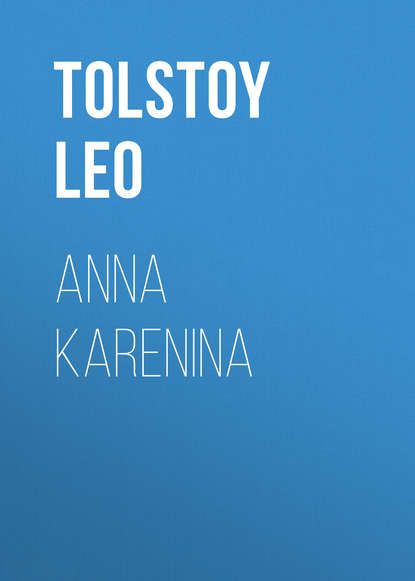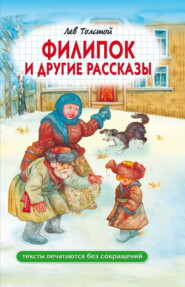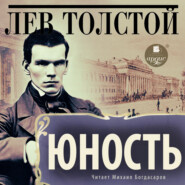По всем вопросам обращайтесь на: info@litportal.ru
(©) 2003-2025.
✖
Anna Karenina
Настройки чтения
Размер шрифта
Высота строк
Поля
"N-n-no!" said Levin.
Darya Alexandrovna too, as she said good-bye to him, gave him a sort of congratulation, saying, "How glad I am you have met Kitty again! One must value old friends." Levin did not like these words of Darya Alexandrovna’s. She could not understand how lofty and beyond her it all was, and she ought not to have dared to allude to it. Levin said good-bye to them, but, not to be left alone, he attached himself to his brother.
"Where are you going?"
"I’m going to a meeting."
"Well, I’ll come with you. May I?"
"What for? Yes, come along," said Sergey Ivanovitch, smiling. "What is the matter with you today?"
"With me? Happiness is the matter with me!" said Levin, letting down the window of the carriage they were driving in. "You don’t mind? – it’s so stifling. It’s happiness is the matter with me! Why is it you have never married?"
Sergey Ivanovitch smiled.
"I am very glad, she seems a nice gi…" Sergey Ivanovitch was beginning.
"Don’t say it! don’t say it!" shouted Levin, clutching at the collar of his fur coat with both hands, and muffling him up in it. "She’s a nice girl" were such simple, humble words, so out of harmony with his feeling.
Sergey Ivanovitch laughed outright a merry laugh, which was rare with him. "Well, anyway, I may say that I’m very glad of it."
"That you may do tomorrow, tomorrow and nothing more! Nothing, nothing, silence," said Levin, and muffling him once more in his fur coat, he added: "I do like you so! Well, is it possible for me to be present at the meeting?"
"Of course it is."
"What is your discussion about today?" asked Levin, never ceasing smiling.
They arrived at the meeting. Levin heard the secretary hesitatingly read the minutes which he obviously did not himself understand; but Levin saw from this secretary’s face what a good, nice, kind-hearted person he was. This was evident from his confusion and embarrassment in reading the minutes. Then the discussion began. They were disputing about the misappropriation of certain sums and the laying of certain pipes, and Sergey Ivanovitch was very cutting to two members, and said something at great length with an air of triumph; and another member, scribbling something on a bit of paper, began timidly at first, but afterwards answered him very viciously and delightfully. And then Sviazhsky (he was there too) said something too, very handsomely and nobly. Levin listened to them, and saw clearly that these missing sums and these pipes were not anything real, and that they were not at all angry, but were all the nicest, kindest people, and everything was as happy and charming as possible among them. They did no harm to anyone, and were all enjoying it. What struck Levin was that he could see through them all today, and from little, almost imperceptible signs knew the soul of each, and saw distinctly that they were all good at heart. And Levin himself in particular they were all extremely fond of that day. That was evident from the way they spoke to him, from the friendly, affectionate way even those he did not know looked at him.
"Well, did you like it?" Sergey Ivanovitch asked him.
"Very much. I never supposed it was so interesting! Capital! Splendid!"
Sviazhsky went up to Levin and invited him to come round to tea with him. Levin was utterly at a loss to comprehend or recall what it was he had disliked in Sviazhsky, what he had failed to find in him. He was a clever and wonderfully good-hearted man.
"Most delighted," he said, and asked after his wife and sister-in-law. And from a queer association of ideas, because in his imagination the idea of Sviazhsky’s sister-in-law was connected with marriage, it occurred to him that there was no one to whom he could more suitably speak of his happiness, and he was very glad to go and see them.
Sviazhsky questioned him about his improvements on his estate, presupposing, as he always did, that there was no possibility of doing anything not done already in Europe, and now this did not in the least annoy Levin. On the contrary, he felt that Sviazhsky was right, that the whole business was of little value, and he saw the wonderful softness and consideration with which Sviazhsky avoided fully expressing his correct view. The ladies of the Sviazhsky household were particularly delightful. It seemed to Levin that they knew all about it already and sympathized with him, saying nothing merely from delicacy. He stayed with them one hour, two, three, talking of all sorts of subjects but the one thing that filled his heart, and did not observe that he was boring them dreadfully, and that it was long past their bedtime.
Sviazhsky went with him into the hall, yawning and wondering at the strange humor his friend was in. It was past one o’clock. Levin went back to his hotel, and was dismayed at the thought that all alone now with his impatience he had ten hours still left to get through. The servant, whose turn it was to be up all night, lighted his candles, and would have gone away, but Levin stopped him. This servant, Yegor, whom Levin had noticed before, struck him as a very intelligent, excellent, and, above all, good-hearted man.
"Well, Yegor, it’s hard work not sleeping, isn’t it?"
"One’s got to put up with it! It’s part of our work, you see. In a gentleman’s house it’s easier; but then here one makes more."
It appeared that Yegor had a family, three boys and a daughter, a sempstress, whom he wanted to marry to a cashier in a saddler’s shop.
Levin, on hearing this, informed Yegor that, in his opinion, in marriage the great thing was love, and that with love one would always be happy, for happiness rests only on oneself. Yegor listened attentively, and obviously quite took in Levin’s idea, but by way of assent to it he enunciated, greatly to Levin’s surprise, the observation that when he had lived with good masters he had always been satisfied with his masters, and now was perfectly satisfied with his employer, though he was a Frenchman.
"Wonderfully good-hearted fellow!" thought Levin.
"Well, but you yourself, Yegor, when you got married, did you love your wife?"
"Ay! and why not?" responded Yegor.
And Levin saw that Yegor too was in an excited state and intending to express all his most heartfelt emotions.
"My life, too, has been a wonderful one. From a child up…" he was beginning with flashing eyes, apparently catching Levin’s enthusiasm, just as people catch yawning.
But at that moment a ring was heard. Yegor departed, and Levin was left alone. He had eaten scarcely anything at dinner, had refused tea and supper at Sviazhsky’s, but he was incapable of thinking of supper. He had not slept the previous night, but was incapable of thinking of sleep either. His room was cold, but he was oppressed by heat. He opened both the movable panes in his window and sat down to the table opposite the open panes. Over the snow-covered roofs could be seen a decorated cross with chains, and above it the rising triangle of Charles’s Wain with the yellowish light of Capella. He gazed at the cross, then at the stars, drank in the fresh freezing air that flowed evenly into the room, and followed as though in a dream the images and memories that rose in his imagination. At four o’clock he heard steps in the passage and peeped out at the door. It was the gambler Myaskin, whom he knew, coming from the club. He walked gloomily, frowning and coughing. "Poor, unlucky fellow!" thought Levin, and tears came into his eyes from love and pity for this man. He would have talked with him, and tried to comfort him, but remembering that he had nothing but his shirt on, he changed his mind and sat down again at the open pane to bathe in the cold air and gaze at the exquisite lines of the cross, silent, but full of meaning for him, and the mounting lurid yellow star. At seven o’clock there was a noise of people polishing the floors, and bells ringing in some servants’ department, and Levin felt that he was beginning to get frozen. He closed the pane, washed, dressed, and went out into the street.
Chapter 15
The streets were still empty. Levin went to the house of the Shtcherbatskys. The visitors’ doors were closed and everything was asleep. He walked back, went into his room again, and asked for coffee. The day servant, not Yegor this time, brought it to him. Levin would have entered into conversation with him, but a bell rang for the servant, and he went out. Levin tried to drink coffee and put some roll in his mouth, but his mouth was quite at a loss what to do with the roll. Levin, rejecting the roll, put on his coat and went out again for a walk. It was nine o’clock when he reached the Shtcherbatskys’ steps the second time. In the house they were only just up, and the cook came out to go marketing. He had to get through at least two hours more.
All that night and morning Levin lived perfectly unconsciously, and felt perfectly lifted out of the conditions of material life. He had eaten nothing for a whole day, he had not slept for two nights, had spent several hours undressed in the frozen air, and felt not simply fresher and stronger than ever, but felt utterly independent of his body; he moved without muscular effort, and felt as if he could do anything. He was convinced he could fly upwards or lift the corner of the house, if need be. He spent the remainder of the time in the street, incessantly looking at his watch and gazing about him.
And what he saw then, he never saw again after. The children especially going to school, the bluish doves flying down from the roofs to the pavement, and the little loaves covered with flour, thrust out by an unseen hand, touched him. Those loaves, those doves, and those two boys were not earthly creatures. It all happened at the same time: a boy ran towards a dove and glanced smiling at Levin; the dove, with a whir of her wings, darted away, flashing in the sun, amid grains of snow that quivered in the air, while from a little window there came a smell of fresh-baked bread, and the loaves were put out. All of this together was so extraordinarily nice that Levin laughed and cried with delight. Going a long way round by Gazetny Place and Kislovka, he went back again to the hotel, and putting his watch before him, he sat down to wait for twelve o’clock. In the next room they were talking about some sort of machines, and swindling, and coughing their morning coughs. They did not realize that the hand was near twelve. The hand reached it. Levin went out onto the steps. The sledge-drivers clearly knew all about it. They crowded round Levin with happy faces, quarreling among themselves, and offering their services. Trying not to offend the other sledge drivers, and promising to drive with them too, Levin took one and told him to drive to the Shtcherbatskys’. The sledge-driver was splendid in a white shirt-collar sticking out over his overcoat and into his strong, full-blooded red neck. The sledge was high and comfortable, and altogether such a one as Levin never drove in after, and the horse was a good one, and tried to gallop but didn’t seem to move. The driver knew the Shtcherbatskys’ house, and drew up at the entrance with a curve of his arm and a "Wo!" especially indicative of respect for his fare. The Shtcherbatskys’ hall-porter certainly knew all about it. This was evident from the smile in his eyes and the way he said:
"Well, it’s a long while since you’ve been to see us, Konstantin Demitrievitch!"
Not only he knew all about it, but he was unmistakably delighted and making efforts to conceal his joy. Looking into his kindly old eyes, Levin realized even something new in his happiness.
"Are they up?"
"Pray walk in! Leave it here," said he, smiling, as Levin would have come back to take his hat. That meant something.
"To whom shall I announce your honor?" asked the footman.
The footman, though a young man, and one of the new school of footmen, a dandy, was a very kind-hearted, good fellow, and he too knew all about it.
"The princess … the prince … the young princess…" said Levin.
The first person he saw was Mademoiselle Linon. She walked across the room, and her ringlets and her face were beaming. He had only just spoken to her, when suddenly he heard the rustle of a skirt at the door, and Mademoiselle Linon vanished from Levin’s eyes, and a joyful terror came over him at the nearness of his happiness. Mademoiselle Linon was in great haste, and leaving him, went out at the other door. Directly she had gone out, swift, swift light steps sounded on the parquet, and his bliss, his life, himself – what was best in himself, what he had so long sought and longed for – was quickly, so quickly approaching him. She did not walk, but seemed, by some unseen force, to float to him. He saw nothing but her clear, truthful eyes, frightened by the same bliss of love that flooded his heart. Those eyes were shining nearer and nearer, blinding him with their light of love. She stopped still close to him, touching him. Her hands rose and dropped onto his shoulders.
She had done all she could – she had run up to him and given herself up entirely, shy and happy. He put his arms round her and pressed his lips to her mouth that sought his kiss.
She too had not slept all night, and had been expecting him all the morning.
Her mother and father had consented without demur, and were happy in her happiness. She had been waiting for him. She wanted to be the first to tell him her happiness and his. She had got ready to see him alone, and had been delighted at the idea, and had been shy and ashamed, and did not know herself what she was doing. She had heard his steps and voice, and had waited at the door for Mademoiselle Linon to go. Mademoiselle Linon had gone away. Without thinking, without asking herself how and what, she had gone up to him, and did as she was doing.
"Let us go to mamma!" she said, taking him by the hand. For a long while he could say nothing, not so much because he was afraid of desecrating the loftiness of his emotion by a word, as that every time he tried to say something, instead of words he felt that tears of happiness were welling up. He took her hand and kissed it.
"Can it be true?" he said at last in a choked voice. "I can’t believe you love me, dear!"
She smiled at that "dear," and at the timidity with which he glanced at her.
"Yes!" she said significantly, deliberately. "I am so happy!"
Darya Alexandrovna too, as she said good-bye to him, gave him a sort of congratulation, saying, "How glad I am you have met Kitty again! One must value old friends." Levin did not like these words of Darya Alexandrovna’s. She could not understand how lofty and beyond her it all was, and she ought not to have dared to allude to it. Levin said good-bye to them, but, not to be left alone, he attached himself to his brother.
"Where are you going?"
"I’m going to a meeting."
"Well, I’ll come with you. May I?"
"What for? Yes, come along," said Sergey Ivanovitch, smiling. "What is the matter with you today?"
"With me? Happiness is the matter with me!" said Levin, letting down the window of the carriage they were driving in. "You don’t mind? – it’s so stifling. It’s happiness is the matter with me! Why is it you have never married?"
Sergey Ivanovitch smiled.
"I am very glad, she seems a nice gi…" Sergey Ivanovitch was beginning.
"Don’t say it! don’t say it!" shouted Levin, clutching at the collar of his fur coat with both hands, and muffling him up in it. "She’s a nice girl" were such simple, humble words, so out of harmony with his feeling.
Sergey Ivanovitch laughed outright a merry laugh, which was rare with him. "Well, anyway, I may say that I’m very glad of it."
"That you may do tomorrow, tomorrow and nothing more! Nothing, nothing, silence," said Levin, and muffling him once more in his fur coat, he added: "I do like you so! Well, is it possible for me to be present at the meeting?"
"Of course it is."
"What is your discussion about today?" asked Levin, never ceasing smiling.
They arrived at the meeting. Levin heard the secretary hesitatingly read the minutes which he obviously did not himself understand; but Levin saw from this secretary’s face what a good, nice, kind-hearted person he was. This was evident from his confusion and embarrassment in reading the minutes. Then the discussion began. They were disputing about the misappropriation of certain sums and the laying of certain pipes, and Sergey Ivanovitch was very cutting to two members, and said something at great length with an air of triumph; and another member, scribbling something on a bit of paper, began timidly at first, but afterwards answered him very viciously and delightfully. And then Sviazhsky (he was there too) said something too, very handsomely and nobly. Levin listened to them, and saw clearly that these missing sums and these pipes were not anything real, and that they were not at all angry, but were all the nicest, kindest people, and everything was as happy and charming as possible among them. They did no harm to anyone, and were all enjoying it. What struck Levin was that he could see through them all today, and from little, almost imperceptible signs knew the soul of each, and saw distinctly that they were all good at heart. And Levin himself in particular they were all extremely fond of that day. That was evident from the way they spoke to him, from the friendly, affectionate way even those he did not know looked at him.
"Well, did you like it?" Sergey Ivanovitch asked him.
"Very much. I never supposed it was so interesting! Capital! Splendid!"
Sviazhsky went up to Levin and invited him to come round to tea with him. Levin was utterly at a loss to comprehend or recall what it was he had disliked in Sviazhsky, what he had failed to find in him. He was a clever and wonderfully good-hearted man.
"Most delighted," he said, and asked after his wife and sister-in-law. And from a queer association of ideas, because in his imagination the idea of Sviazhsky’s sister-in-law was connected with marriage, it occurred to him that there was no one to whom he could more suitably speak of his happiness, and he was very glad to go and see them.
Sviazhsky questioned him about his improvements on his estate, presupposing, as he always did, that there was no possibility of doing anything not done already in Europe, and now this did not in the least annoy Levin. On the contrary, he felt that Sviazhsky was right, that the whole business was of little value, and he saw the wonderful softness and consideration with which Sviazhsky avoided fully expressing his correct view. The ladies of the Sviazhsky household were particularly delightful. It seemed to Levin that they knew all about it already and sympathized with him, saying nothing merely from delicacy. He stayed with them one hour, two, three, talking of all sorts of subjects but the one thing that filled his heart, and did not observe that he was boring them dreadfully, and that it was long past their bedtime.
Sviazhsky went with him into the hall, yawning and wondering at the strange humor his friend was in. It was past one o’clock. Levin went back to his hotel, and was dismayed at the thought that all alone now with his impatience he had ten hours still left to get through. The servant, whose turn it was to be up all night, lighted his candles, and would have gone away, but Levin stopped him. This servant, Yegor, whom Levin had noticed before, struck him as a very intelligent, excellent, and, above all, good-hearted man.
"Well, Yegor, it’s hard work not sleeping, isn’t it?"
"One’s got to put up with it! It’s part of our work, you see. In a gentleman’s house it’s easier; but then here one makes more."
It appeared that Yegor had a family, three boys and a daughter, a sempstress, whom he wanted to marry to a cashier in a saddler’s shop.
Levin, on hearing this, informed Yegor that, in his opinion, in marriage the great thing was love, and that with love one would always be happy, for happiness rests only on oneself. Yegor listened attentively, and obviously quite took in Levin’s idea, but by way of assent to it he enunciated, greatly to Levin’s surprise, the observation that when he had lived with good masters he had always been satisfied with his masters, and now was perfectly satisfied with his employer, though he was a Frenchman.
"Wonderfully good-hearted fellow!" thought Levin.
"Well, but you yourself, Yegor, when you got married, did you love your wife?"
"Ay! and why not?" responded Yegor.
And Levin saw that Yegor too was in an excited state and intending to express all his most heartfelt emotions.
"My life, too, has been a wonderful one. From a child up…" he was beginning with flashing eyes, apparently catching Levin’s enthusiasm, just as people catch yawning.
But at that moment a ring was heard. Yegor departed, and Levin was left alone. He had eaten scarcely anything at dinner, had refused tea and supper at Sviazhsky’s, but he was incapable of thinking of supper. He had not slept the previous night, but was incapable of thinking of sleep either. His room was cold, but he was oppressed by heat. He opened both the movable panes in his window and sat down to the table opposite the open panes. Over the snow-covered roofs could be seen a decorated cross with chains, and above it the rising triangle of Charles’s Wain with the yellowish light of Capella. He gazed at the cross, then at the stars, drank in the fresh freezing air that flowed evenly into the room, and followed as though in a dream the images and memories that rose in his imagination. At four o’clock he heard steps in the passage and peeped out at the door. It was the gambler Myaskin, whom he knew, coming from the club. He walked gloomily, frowning and coughing. "Poor, unlucky fellow!" thought Levin, and tears came into his eyes from love and pity for this man. He would have talked with him, and tried to comfort him, but remembering that he had nothing but his shirt on, he changed his mind and sat down again at the open pane to bathe in the cold air and gaze at the exquisite lines of the cross, silent, but full of meaning for him, and the mounting lurid yellow star. At seven o’clock there was a noise of people polishing the floors, and bells ringing in some servants’ department, and Levin felt that he was beginning to get frozen. He closed the pane, washed, dressed, and went out into the street.
Chapter 15
The streets were still empty. Levin went to the house of the Shtcherbatskys. The visitors’ doors were closed and everything was asleep. He walked back, went into his room again, and asked for coffee. The day servant, not Yegor this time, brought it to him. Levin would have entered into conversation with him, but a bell rang for the servant, and he went out. Levin tried to drink coffee and put some roll in his mouth, but his mouth was quite at a loss what to do with the roll. Levin, rejecting the roll, put on his coat and went out again for a walk. It was nine o’clock when he reached the Shtcherbatskys’ steps the second time. In the house they were only just up, and the cook came out to go marketing. He had to get through at least two hours more.
All that night and morning Levin lived perfectly unconsciously, and felt perfectly lifted out of the conditions of material life. He had eaten nothing for a whole day, he had not slept for two nights, had spent several hours undressed in the frozen air, and felt not simply fresher and stronger than ever, but felt utterly independent of his body; he moved without muscular effort, and felt as if he could do anything. He was convinced he could fly upwards or lift the corner of the house, if need be. He spent the remainder of the time in the street, incessantly looking at his watch and gazing about him.
And what he saw then, he never saw again after. The children especially going to school, the bluish doves flying down from the roofs to the pavement, and the little loaves covered with flour, thrust out by an unseen hand, touched him. Those loaves, those doves, and those two boys were not earthly creatures. It all happened at the same time: a boy ran towards a dove and glanced smiling at Levin; the dove, with a whir of her wings, darted away, flashing in the sun, amid grains of snow that quivered in the air, while from a little window there came a smell of fresh-baked bread, and the loaves were put out. All of this together was so extraordinarily nice that Levin laughed and cried with delight. Going a long way round by Gazetny Place and Kislovka, he went back again to the hotel, and putting his watch before him, he sat down to wait for twelve o’clock. In the next room they were talking about some sort of machines, and swindling, and coughing their morning coughs. They did not realize that the hand was near twelve. The hand reached it. Levin went out onto the steps. The sledge-drivers clearly knew all about it. They crowded round Levin with happy faces, quarreling among themselves, and offering their services. Trying not to offend the other sledge drivers, and promising to drive with them too, Levin took one and told him to drive to the Shtcherbatskys’. The sledge-driver was splendid in a white shirt-collar sticking out over his overcoat and into his strong, full-blooded red neck. The sledge was high and comfortable, and altogether such a one as Levin never drove in after, and the horse was a good one, and tried to gallop but didn’t seem to move. The driver knew the Shtcherbatskys’ house, and drew up at the entrance with a curve of his arm and a "Wo!" especially indicative of respect for his fare. The Shtcherbatskys’ hall-porter certainly knew all about it. This was evident from the smile in his eyes and the way he said:
"Well, it’s a long while since you’ve been to see us, Konstantin Demitrievitch!"
Not only he knew all about it, but he was unmistakably delighted and making efforts to conceal his joy. Looking into his kindly old eyes, Levin realized even something new in his happiness.
"Are they up?"
"Pray walk in! Leave it here," said he, smiling, as Levin would have come back to take his hat. That meant something.
"To whom shall I announce your honor?" asked the footman.
The footman, though a young man, and one of the new school of footmen, a dandy, was a very kind-hearted, good fellow, and he too knew all about it.
"The princess … the prince … the young princess…" said Levin.
The first person he saw was Mademoiselle Linon. She walked across the room, and her ringlets and her face were beaming. He had only just spoken to her, when suddenly he heard the rustle of a skirt at the door, and Mademoiselle Linon vanished from Levin’s eyes, and a joyful terror came over him at the nearness of his happiness. Mademoiselle Linon was in great haste, and leaving him, went out at the other door. Directly she had gone out, swift, swift light steps sounded on the parquet, and his bliss, his life, himself – what was best in himself, what he had so long sought and longed for – was quickly, so quickly approaching him. She did not walk, but seemed, by some unseen force, to float to him. He saw nothing but her clear, truthful eyes, frightened by the same bliss of love that flooded his heart. Those eyes were shining nearer and nearer, blinding him with their light of love. She stopped still close to him, touching him. Her hands rose and dropped onto his shoulders.
She had done all she could – she had run up to him and given herself up entirely, shy and happy. He put his arms round her and pressed his lips to her mouth that sought his kiss.
She too had not slept all night, and had been expecting him all the morning.
Her mother and father had consented without demur, and were happy in her happiness. She had been waiting for him. She wanted to be the first to tell him her happiness and his. She had got ready to see him alone, and had been delighted at the idea, and had been shy and ashamed, and did not know herself what she was doing. She had heard his steps and voice, and had waited at the door for Mademoiselle Linon to go. Mademoiselle Linon had gone away. Without thinking, without asking herself how and what, she had gone up to him, and did as she was doing.
"Let us go to mamma!" she said, taking him by the hand. For a long while he could say nothing, not so much because he was afraid of desecrating the loftiness of his emotion by a word, as that every time he tried to say something, instead of words he felt that tears of happiness were welling up. He took her hand and kissed it.
"Can it be true?" he said at last in a choked voice. "I can’t believe you love me, dear!"
She smiled at that "dear," and at the timidity with which he glanced at her.
"Yes!" she said significantly, deliberately. "I am so happy!"

















